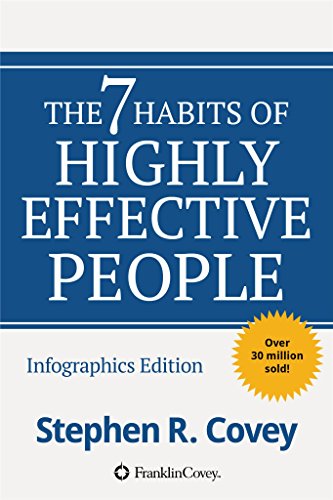Stephen Covey's 'The 7 Habits of Highly Effective People' has sold over 25 million copies in print while The 7 Habits of Highly Effective People audiobook has sold over 15 million copies. It was the first non-fiction audiobook to sell over a million copies. Covey believes that values are internal to an individual whereas principles are external and he has written a book about matching your intrinsic values to basic principles that have always been the same e.g., the principles of honesty, integrity, empathy, kindness etc. These are all values that we grew up learning but they may have shifted within us with the coming of adulthood. However, by following the 7 Habits, we can gain them back and discover our "true north."
Covey's idea is that there is enough for everyone in this world. So there's really no point in being competitive and trying to cut the other person out. One can have a win-win situation where both parties benefit. This is what Covey calls the concept of abundance. If you keep in mind that there's enough for everyone, you won't constantly worry about things that you can't control. Instead you'll try to change the things that you can control, which will give you a feeling of satisfaction and get you closer to your ultimate aim in life.
Covey's first habit is to be proactive, which means not placing the blame for what's wrong with your life on others or on factors that are outside of yourself. If your life isn't what you want it to be then that's because you haven't done what's necessary to make it so. This can be an empowering way to think because it means that it's within your power to effect change. Habit 2 is to keep the end in mind or to take the long-term outlook. Habit 3 is prioritizing and doing what you consider more important in your life. This might seem easy but often, life gets in the way of doing what you really want.
The next three habits are about your relationships with other people, thinking with the abundance mentality and therefore developing empathy for others and working with them cooperatively. The last habit involves taking care of yourself; your physical, mental and spiritual health is important and if you don't treat yourself well, you can't expect to perform effectively or to have good relationships with others.
